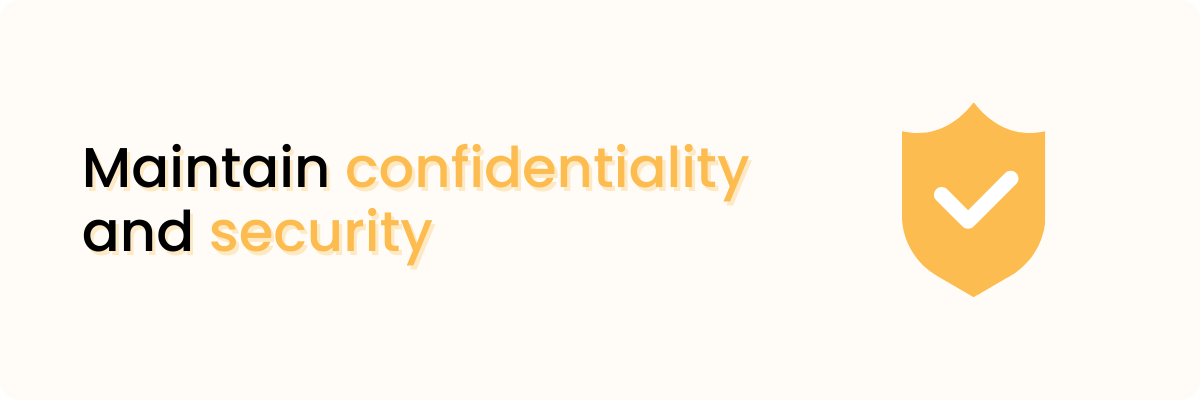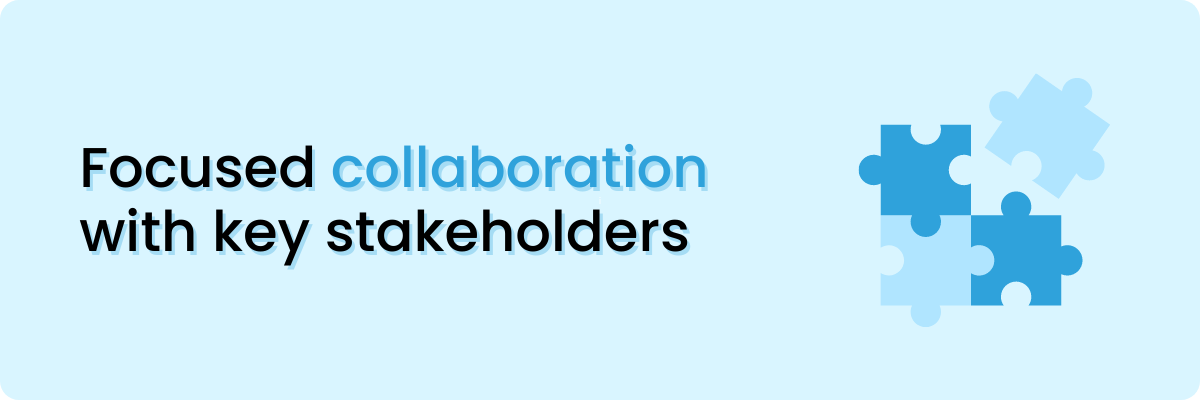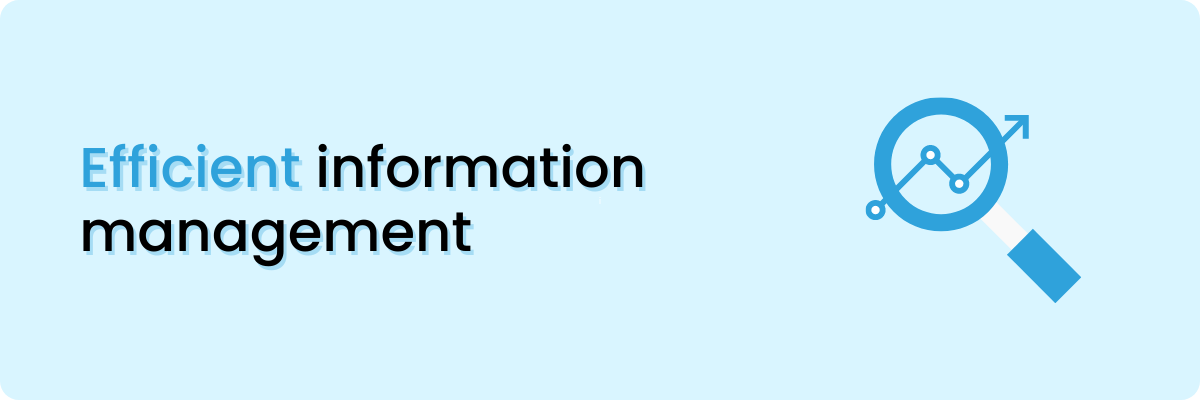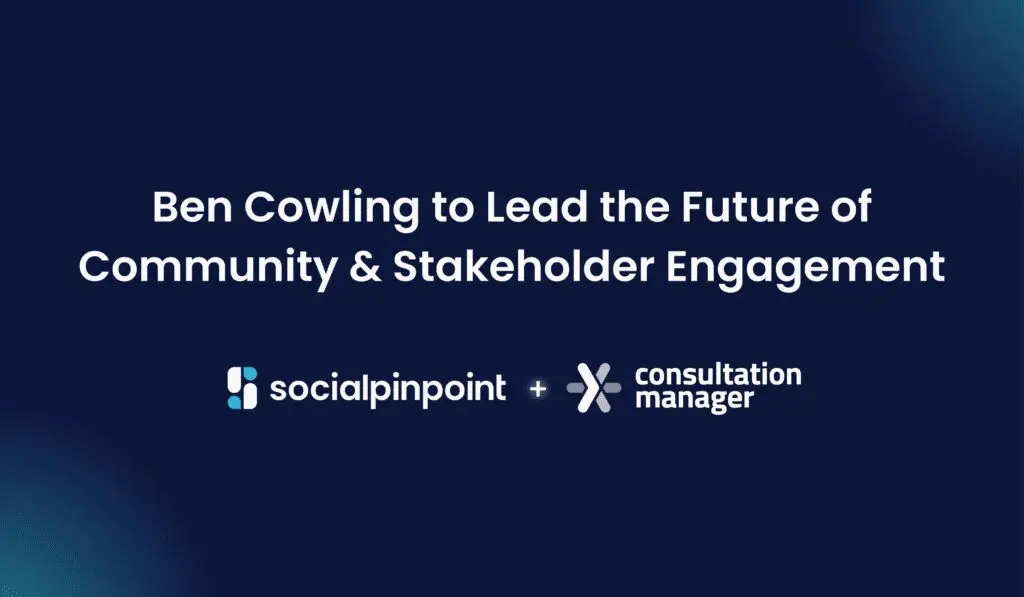Private community engagement projects empower organizations to foster meaningful connections, facilitate focused discussions, and build stronger relationships with specific groups within their community. They can be highly effective for targeting key stakeholders, and driving focused discussions.
Sometimes, you may not want every single community member to provide input. We know this might sound a little crazy, but bear with us. You see, when it comes to community engagement, organizations may adopt various approaches when interacting with their community.
More often than not, projects are made public, aiming to engage with a wide range of community members. Public projects invite interaction and engagement from everyone and allow you to reach all of your intended audience.
Recently, we have seen the rise of private projects, focusing on specific groups for more targeted discussions. Private projects allow you to segment your community and provide a more personalized, focused approach for your engagement.
Let’s explore the advantages of using private projects to foster meaningful collaboration and participation in community engagement initiatives.
What is the Difference Between Public and Private Projects for Community Engagement?
Before diving into the advantages of private projects in community engagement, let’s first gain an understanding of the concept of private projects and how they differentiate themselves from public projects.
Public projects for community engagement
In community engagement, public projects aim to involve a broad spectrum of participants, welcoming individuals from diverse communities. These projects seek diverse perspectives and strive to include as many individuals as possible.
Public projects prioritize openness and transparency, empowering participants to contribute to decision-making processes. Organizations may utilize broad strategies, such as hosting public meetings, utilizing online platforms, and conducting surveys, to engage with a broad spectrum of individuals and collect their feedback.
By embracing public participation, you provide each individual with the chance to express their views and actively engage in the decision-making process.
Private projects for community engagement
On the other hand, private projects for community engagement are more exclusive and limited to specific groups. They’re all about bringing together a select bunch of individuals or stakeholders who have a direct interest or expertise in the project.
Private projects enable concentrated discussions and collaborations within a smaller, carefully selected group. Generally, this allows for in-depth exploration of specific topics or addressing particular issues more relevant to the audience present.
They provide greater control over participant selection and enable the maintenance of confidentiality when necessary. Private projects also offer a dedicated space for the appropriate individuals to collaborate and focus on finding solutions without any disturbances.
An example could be a new Placemaking Strategy for a local restaurant hub – involving key stakeholders, such as restaurant owners, tenants, workers, and nearby residents, in an initial consultation could help build greater trust and transparency.
Benefits of Using Private Community Engagement Projects
Engaging with the community through private projects can offer many benefits to help you enhance the effectiveness and outcomes of your engagement process. Here are some key advantages to consider.

Maintain confidentiality and security
In community projects, effectively handling sensitive information, proprietary technology, and confidential partnerships is crucial. Consequently, ensuring privacy, preventing data breaches, and avoiding disclosure to competitors or the general public are essential factors to be mindful of.
Private projects offer a secure and controlled setting for sharing sensitive information, typically implemented through a login system. By utilizing login credentials such as usernames, passwords, or additional authentication methods, private projects can ensure that only authorized participants can access the project’s content and resources.
For instance, let’s consider a community project aimed at collaborating with a local school to develop innovative teaching methods. To maintain strict confidentiality, a private project can be created, granting access solely to relevant school staff and company representatives who need to access sensitive data. This approach safeguards the interests of both the school and the collaborating company.
By implementing a private project in this context, secure information sharing is facilitated. Therefore, you are able to foster trust and confidentiality among the involved parties by ensuring that sensitive information is handled with the necessary precautions.
A community engagement platform that has achieved the highest standard of security, safety, and support, such as ISO 27001 Accreditation would allow you to remain confident in data privacy and integrity.

Focused collaboration with key stakeholders
Private community engagement projects enable collaboration with specific groups or members who are directly involved in or have a particular interest in the project. By limiting the project’s access to the designated group, participants can delve deeper into the topic, sharing their experiences, expertise, and ideas more openly without external distractions or noise.
For example, let’s say you are involved in a public health campaign that targets mental health issues within a particular community. To foster impactful and purposeful conversations, you can establish a restricted community engagement endeavor by thoughtfully handpicking participants who possess relevant expertise, knowledge, or vested interests in the project. Members might include mental health professionals, local community leaders, residents with personal experiences, and representatives from relevant organizations.
With restricted access, it can allow for focused discussions, where participants can dive deep into the topic, consider different viewpoints, and engage in rigorous debates. This tailored and collaborative approach maximizes the involvement of key stakeholders, leading to more impactful and sustainable outcomes for the community.

Enhanced participation and motivation
As well as improved collaboration, private projects can also enhance participation. By engaging in small-sized groups, private projects enable focused and meaningful interactions, fostering community members’ willingness to participate and contribute.
In a more intimate setting, their perspectives are valued, providing ample opportunities for expressing thoughts, engaging in in-depth discussions, and taking risks. The reduced fear of judgment or criticism within this select audience empowers individuals to share unique insights that may remain unshared in larger, public settings.
By creating an environment where participants feel valued, engaged, and empowered, private projects unlock the full potential of community members, facilitating inclusive and impactful community engagement. This diversity enriches the overall process and enhances understanding of the community’s needs, aspirations, and concerns.

Controlled and relevant discussions
Private community engagement projects provide a structured and organized platform for addressing specific topics or working with specific groups. By bringing together these stakeholders, you aim to create a platform where everyone can contribute to the most relevant discussions.
You can also segment discussions, initiatives, or tasks based on their relevance or the stakeholders involved. If you were to create a dedicated private project for your Sustainability Strategy, you might have channels dedicated to waste management, renewable energy, green infrastructure, transportation, and community education. Each channel serves as a focused space for participants to share ideas, ask questions, and collaborate on initiatives related to the specific topic.

Efficient information management
Private projects also provide a valuable advantage in organizing discussions, action plans, and resources for participants.
Let’s consider a private project centered around revitalizing a neighborhood park. By utilizing a private project, participants can access relevant information about the park’s history, environmental assessments, proposed design plans, and community feedback within a secure space.
Reporting and analysis of these discussions also helps to prevent information overload and guarantees that valuable resources and insights remain easily accessible to participants. As a result, practitioners can efficiently coordinate efforts, save time, and allocate resources effectively, ultimately driving impactful change within their communities.
Ultimately, the choice between public and private projects depends on the goals and context of the organization’s community engagement initiatives. By considering the benefits of private projects, such as confidentiality, security, and tailored collaborations, organizations can make informed decisions to maximize the impact of their community engagement efforts.












